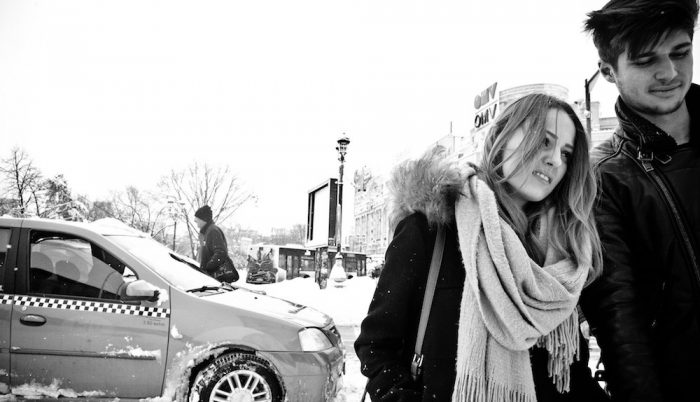About six years ago, I met and fell in love with a downhill mountain biker.
You know, the type of biking that requires a full-face helmet, body armor, and the Jonny Knoxville style of chucking one’s self off a cliff, while simultaneously trying to stay on the bike.
The first time I ever saw him race down a mountain in Bootleg Canyon, Nevada, I admittedly had to take a few moments to reflect on what that meant for me. You see, just a year earlier, I had lost my husband to a car accident. Now, here I was, watching my new love intentionally increase his odds of fatality—just for fun.
Perhaps surprisingly, I have, since then, become comfortable with his lifestyle. My acceptance came from the acceptance of my own self and the life I choose to live each day.
“When are you going to get him to stop racing?” people would often ask me. “He’s not getting any younger, and he’s bound to get hurt.” I regularly joke that I’m fine with him jumping off cliffs, as long as I am the beneficiary on his life insurance policy.
But that’s just the humor I use to avoid the painful truth—which is that his life choices have nothing to do with me.
We spend our lives making sure that everything goes “right.” We spend our time fixing problems and mitigating disasters. We protect the ones we love and only let them fall when we can justify it as “tough love” or “a learning experience.”
But in reality, it has nothing to do with us.
My realization is that I did everything I knew to do in life to make sure my family and I were safe, and my husband died anyway. In the end, whatever I do, I cannot control the life trajectory of another person.
I’m not saying we don’t protect our children and those who are unable to care or make decisions for themselves, but after all the basic needs are taken care of, at what point does it stop? Are we here to control everyone in our lives to live in a manner that serves our own interest?
I want my boyfriend to be happy, and downhill mountain biking has been in his life a lot longer than I have. If he chooses to surrender something for me, whose life is he living? And then would I really love him for who he is, and all his passion, or would I love him for who I want him to be?
My example may be extreme, but the concept goes further than just allowing your partner to perform a dangerous sport. It is important that we ask ourselves why we are requesting change from others in our life. The real question is how does the behavior and life path of those we love reflect on us? And why is it so important that we pressure others to perform and even have a belief system that meets the standards of our own lives? What fears lurk beneath our cordial smiles and superficial pleasantries when we meet someone who represents something we are not?
The author Cherie Carter-Scott once said, “Other people are merely mirrors of you. You cannot love or hate something about another person unless it reflects to you something you love or hate about yourself.”
Oftentimes, it is easier to accept a stranger’s differences than it is to accept the differences of the ones we love. Somehow, the actions of our close ones reflect on who we think we are, and the fear comes from how we could be perceived or viewed in a way we don’t want to be. Other times, it is us taking responsibility for how the other person behaves. We believe that this challenges our own belief systems and the influences we have on those around us. And still other times, we are simply so intertwined in another person’s life that their thoughts, feelings, and actions affect our day-to-day life.
But at the end of the day, no matter how much we love another person, we cannot live their life for them, or bank our happiness on the life of someone other than ourselves.
What I came to realize is that downhill mountain bike racing was not my fear. It was not the potential of an accident and certainly was not my boyfriend’s choices that frightened me. It was my own perception of life, based on my own experiences and what the actions of others bring out in me. It was my fear of accepting that death could happen to any of us at any time, odds increased or not—and that I could still have the courage to fall in love anyway.











Read 2 comments and reply